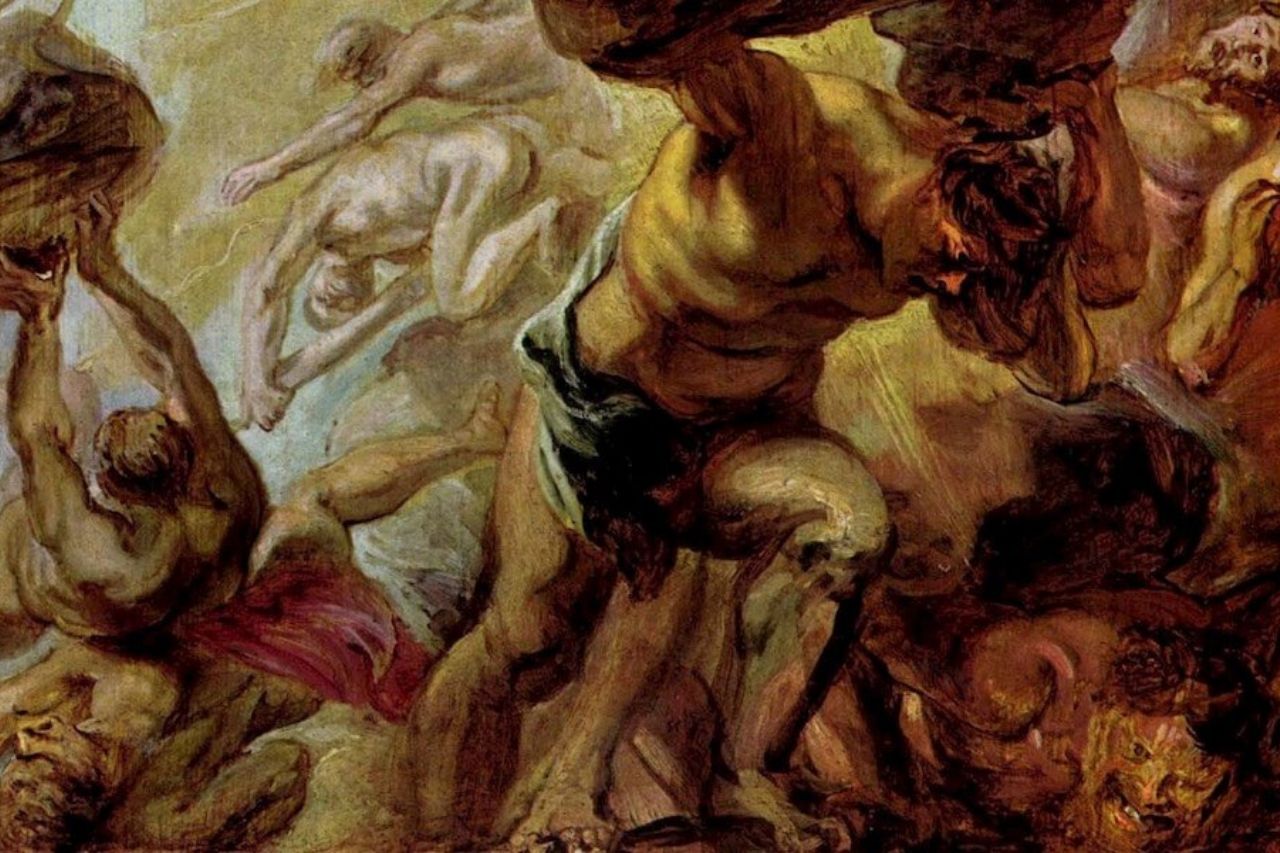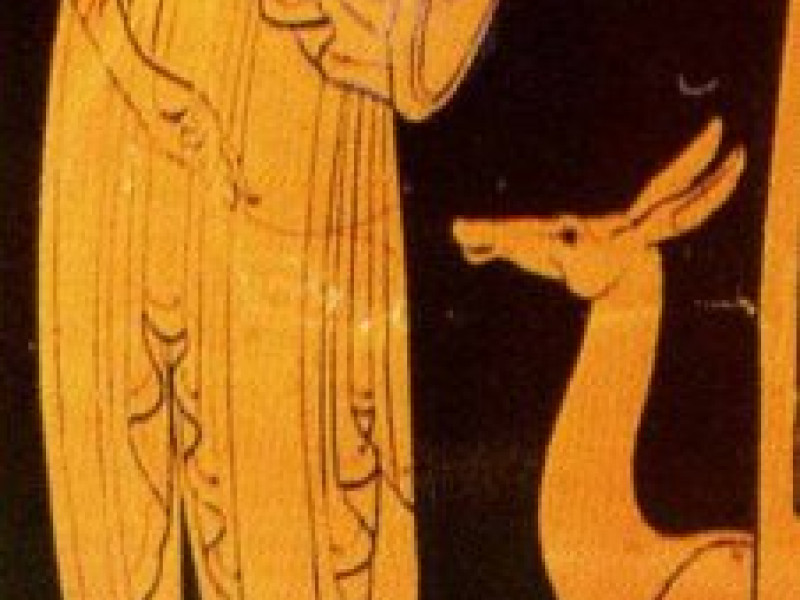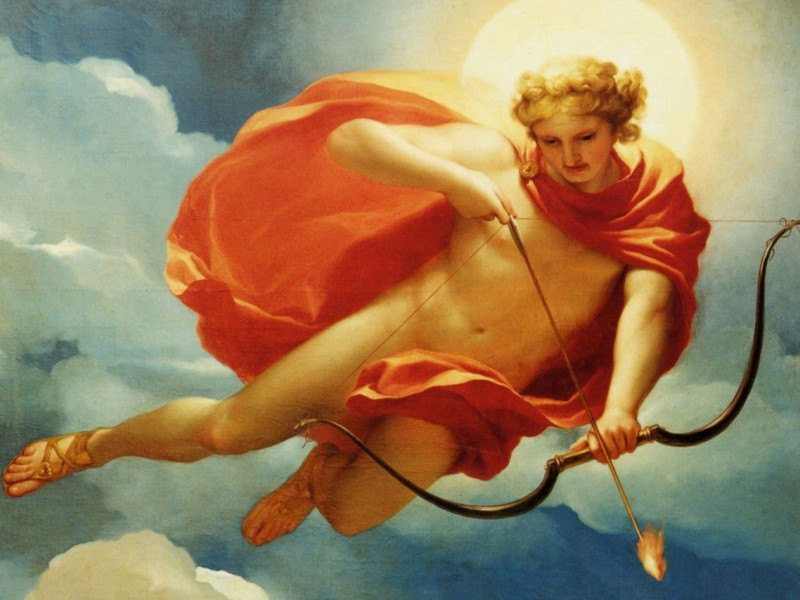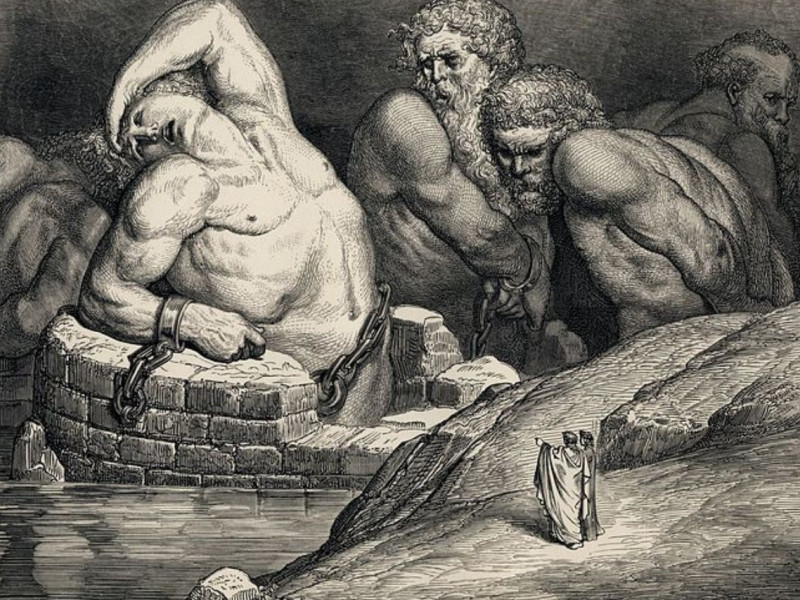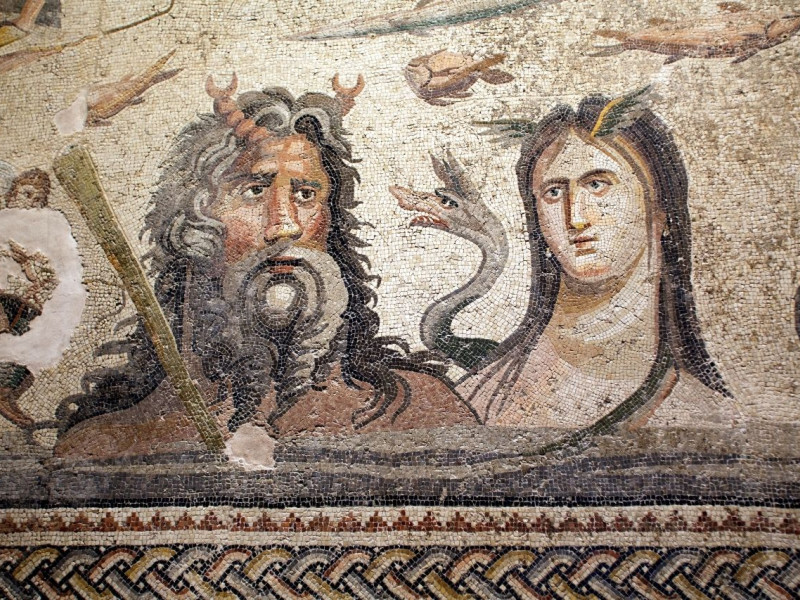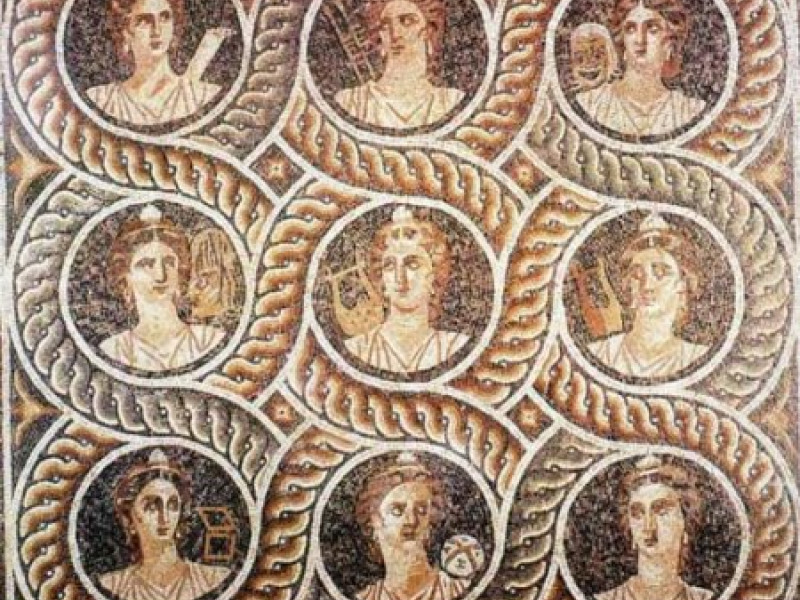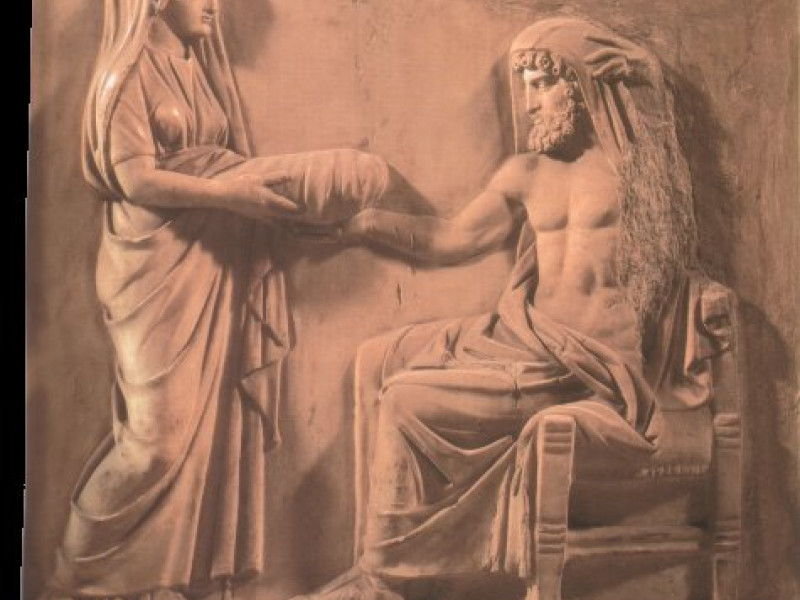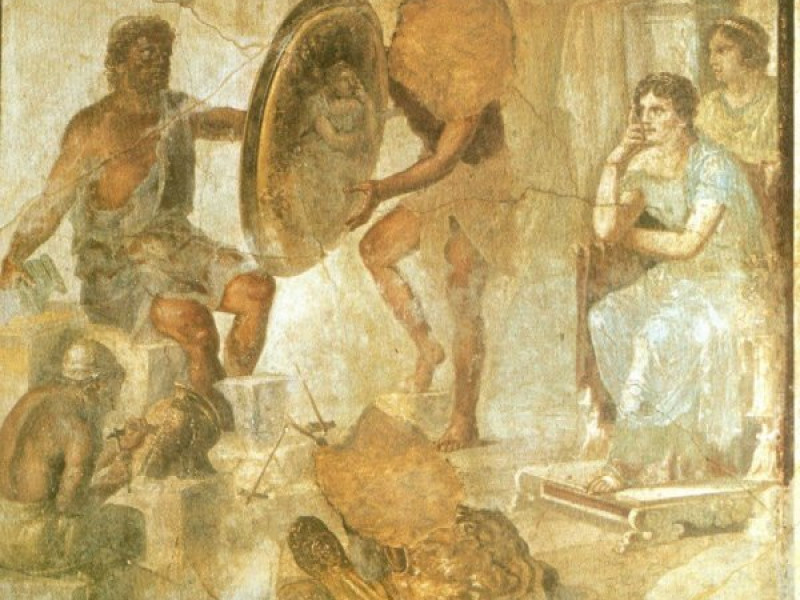Lelantos: The Invisible Titan God of Greek Mythology
Lelantos is an invisible, formless god, a direct personification and representation of one of the key elements of nature. Being a second-generation titan, he is not well-known when compared to the other Olympian gods, but he effectively performs his role of being unseen. He became an excellent god of hunting as well. However, there are advantages and disadvantages to it. Find out more about it by reading on!
Who Is Lelantos?
Lelantos was one of the second-generation titans, the son of Coeus and Phoebe. He is known as the god of the air, a formless god moving unseen. He is also regarded as the deity of hunters who aids them in stalking their prey during hunting.
The Origins of Lelantos
In Greek mythology, Lelantos was one of the younger titans. He was believed to be a god with no form and had the ability to move unseen; thus, he is known as the god of the air. This god was the titan’s air, who battled, hunted, and captured without being seen because he was as invisible as air, he was never captured, but always the one to attack with all confidence.
Being Portrayed as a God
Lelantos' presence in the tales of the ancient Greeks can be assumed to be somewhat shallow for the reason that he is a deity of an unseen but felt element, the relevance of which is frequently underappreciated.
With the exception of the widely accepted capability to pursue his target covertly, it is challenging to adequately characterize his powers and skill due to his association with an invisible component. This ability is extensively utilized, particularly when hunting prey. However, there is not much information about Lelantos God of air, other than this application.
According to some historians and literary critics, Lelantos may have existed even before the Olympian gods and can be considered to be one of the primordial beings because he represents one of the key elements of existence: air.
However, as he did not take any physical form and he embodied nothingness, there were no traces of his existence. There wasn't even a single Lelantos symbol that was documented to represent him. As a result, he was not included in other written works that feature his family.
Family Background
Lelantos is the son of the Titan’s god of an inquisitive mind, Coeus, and the goddess of a bright mind, Phoebe. He is a sibling of Leto who was the goddess of motherhood and mother of Apollo and Artemis, and to Asteria, a goddess related to astrology, such as night-time divination; she is also the mother of Hecate.
Needless to say, even though Lelantos is not quite known, he came from a family tree of very capable gods and goddesses, and he himself has the ability and competence of a great god. However, many of the written works about the family of Coeus and Phoebe do not include Lelantos; only Leto and Asteria are named as their children. Lelantos is only mentioned in the published work of the Greek poet, Nonnus.
He married Periboea, one of the 3000 Oceanid water nymphs. Similar to Lelantos, Periboea is also a daughter of two titans—Oceanus and Tethys—so she also does not have much presence in Greek mythology. Lelantos and Periboea had one daughter named Aura, who became the goddess of the breeze or the fresh air. Just as he was the god of air, she was the breeze born from the god of air.
Like his father Lelantos, who is often referred to as the male counterpart of Leto, Aura is similarly compared and associated with Leto’s daughter, Artemis. However, unlike her parents, Aura’s presence in Greek mythology is a lot stronger.
Written References
Greek mythology has a vast list of gods and goddesses aside from the titan gods and goddesses. While the majority of the Olympian gods, such as Zeus, Hades, and Poseidon, are well-known, their ancestors, the titan gods, and goddesses are not often mentioned in the stories of the ancient Greeks.
Unlike the Olympian gods, the sovereignty of the powers of these titans was more on the natural elements, such as the earth, sea, sky, and air. Thus, they were not as revered as the other Olympian gods who directly affected man.
There were few written accounts of them, especially of Lelantos. The 48-book epic poem "Dionysiaca" by the Greek poet Nonnus of Panopolis is the sole known source of information about him that is still in existence. It was composed somewhere in the 5th century AD.
In the poem, Nonnus gave details on the origins of Lelantos, including his parents, siblings, and his own family (wife and daughter). This served as the only reference when it came to this titan god of air.
Terminology References
In fact, his name Lelantos came from the Greek words letho, lanthano, and lelathon, which literally mean "something that goes unobserved." In addition, his name can also be spelled as Lelantus, and Lelantos pronunciation can be le-lan-tus.
FAQ
Who Was Lelantos’ Daughter?
Aura is Lelantos’ only child. She became Artemis’ close companion as they both value they're being pure and chaste. However, Aura made the mistake of boasting to Artemis that she is superior when it comes to their breasts. Given that Aura’s physical features were more manly, her breasts were smaller and rounder, whereas Artemis has very muscular body parts.
This made Artemis angry, and she arranged for her retribution to make Aura lose her virginity. She made Eros shoot Dionysus with an arrow to make him madly desire Aura, which resulted in Dionysus drugging Aura and raping her. Afterward, he quickly escaped, leaving Aura unaware of who assaulted her.
Upon learning that she was raped and later became pregnant, Aura tried everything to kill herself, but she did not succeed. She gave birth to twins and successfully killed one of the babies while Artemis contemplated her guilt and took the other one to safety. Eventually, Aura drowned herself, and Zeus took pity on her and turned her into a spring. The surviving child of Aura would, later on, be Iacchus, the head of the Eleusinian Mysteries and chief attendant of Demeter.
Conclusion
Lelantos is one of the younger and minor titan gods. As he is not an offspring of a primordial being or any of the Olympian gods, his existence has remained low-key and almost negligible. Let us summarize what we have learned about him.
The name Lelantos, which can also be spelled Lelantus, translates to "something that goes unobserved." This was derived from the Greek words letho, lanthano, and lelathon. Lelantos’ name is very fitting for the god of air.
He is often characterized as a formless god, moving unobserved. Having this ability, he was also regarded as the deity of the hunters, as his invisibility and stalking moves were very useful when hunting prey.
There is not much available information about Lelantos, with the only surviving source being the epic poem, “Dionysiaca,” written around the 5th century. It is the work of the Greek poet, Nonnus. This poem consists of 48 books wherein the details about Lelantos’ origins and family are mentioned.
According to the poem, Lelantos is the son of two titans: Coeus and Phoebe. This makes him the brother of Leto and Asteria. Lelantos is sometimes referred to as the male counterpart of Leto.
He married Periboea, one of the 3000 Oceanids who is also a daughter of two titans. Together, they had one child, a daughter named Aura, who became the goddess of the breeze.
Even though Lelantos is not as popular as the other gods and goddesses of the Greek pantheon, it is very interesting to know that a god of such an element existed and, who knows, might still exist up to this day. It is only proof that it is important to acknowledge the presence of someone or something even if we cannot see them.
Sadly, for Lelantos, it seems that he was taken for granted and overlooked by others, who neglected and did not include him in their written works. However, thanks to Nonnus, the world came to know about this formless god.
